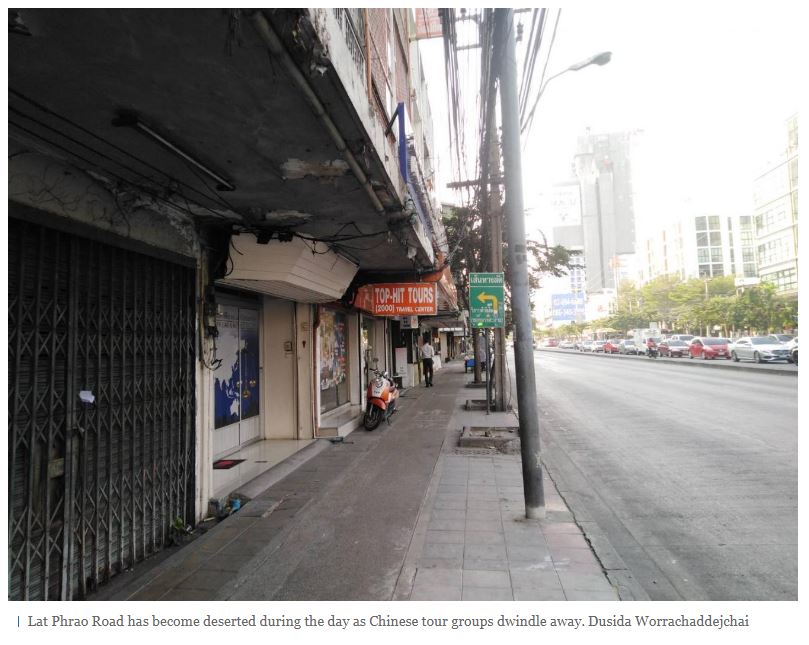Thailand: Chinese shortfall has hotels saving costs by cutting staff
Hotels are cutting back on staff in response to weaker demand from Chinese guests, especially on Ratchadaphisek Road in Bangkok and Pattaya.
The two areas were usually packed with Chinese travellers during the high season. Ratchadaphisek Road has hotels and condos that mainly target tourists from the mainland.
In the past few weeks, the roadside has been quieter than usual as tour buses dwindled, said Sarun Limsawaddiwong, managing director of S Group.
He said two hotels under the company — S Ratchada and S Ram Leisure in the Ramkhamhaeng area — with a combined 600 rooms, have seen average occupancy drop to 20% this month.
Chinese tour groups usually account for 80% of total guests for these two hotels.
With cancellations ongoing, Mr Sarun asked 200 workers at the two hotels to relocate to four other hotels that are also owned by the group in the Sukhumvit area, where occupancy rates are above 70%.
The group also encouraged staff to take annual leave while waiting for the Chinese market to return.
The company plans to use this opportunity to conduct training in the Chinese language to ensure that the business runs smoothly when guests return.
Supawan Tanomkieatipume, president of the Thai Hotels Association (THA), said this month some hotels still have guests remaining, but from next month some hotels where most guests are Chinese may need to lay off temporary staff to reduce costs.
“Normally hotels will hire short-term staff during high seasons, but when the market is soft they’ll shrink workforces to comply with weaker demand,” Ms Supawan said.
Hotels in Pattaya City are trying to cut labour costs because Chinese guests, who accounted for 50% of total international tourists, have fallen to 5%, said Sanpech Supabowornsthian, vice-president of the THA’s eastern chapter.
A 250-room hotel will hire at least 200 staff, with 50% on temporary contracts.
When the market slows down, hotels lay off temporary employees first to make sure services continue without interruption when the situation returns to normal.
Mr Sanpech was told by Chinese tour operators that customers would return after at least 45 days, as the Chinese government has not yet lifted the travel ban.
He also worries that the Indian market, some 20% of the total, is avoiding Pattaya, especially incentive groups that are sensitive to safety issues.
He said the situation in Pattaya is more difficult than other areas for hotel operators because the competition in the area is already intense, with more than 100,000 rooms competing in the market.
Kongsak Khoopongsakorn, president of the THA’s southern chapter, said that if any hotel relies too much on Chinese guests, temporary staff or paid interns are the first group to leave.
Hoteliers also have to cut other costs such as food and drink, utilities and staff-related expenses such as training or overtime payments to tighten their belts.
Despite the decline in the Chinese market, which accounts for 30% of tourists in Chiang Mai, hotels in the area are still getting bookings from independent tourists from the mainland and other international markets.
“There will be no layoffs for Chiang Mai hotels during the first quarter this year, which is considered the high season,” Ms Supawan said. “We have to monitor closely whether the slowdown is dragging into the second quarter.”
Source: https://www.bangkokpost.com/business/1854944/chinese-shortfall-has-hotels-saving-costs-by-cutting-staff


 English
English




